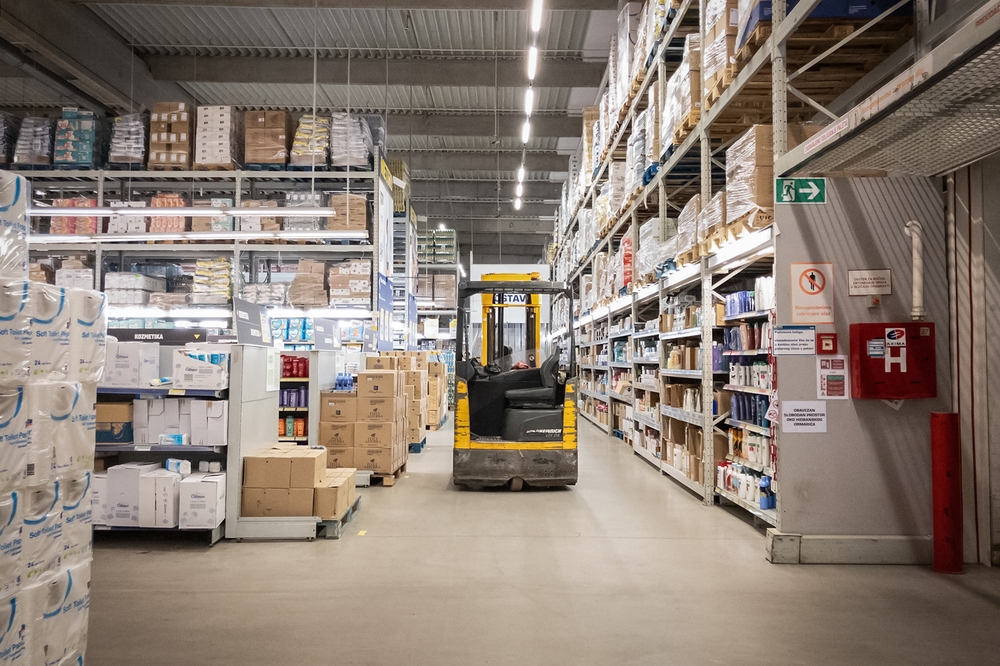Introduction:
Warehouse management extends beyond the effective and economical storage and distribution of stock. It encompasses risk management, environmental stewardship, automation processes, employee training, and optimizing warehouse configuration.
By registering for this Warehouse Management seminar, you will adopt a certification-focused mindset, preparing you to tackle numerous warehouse management challenges. This seminar offers fundamental solutions and practices aimed at deepening your understanding of warehouse management processes.
Completing this training ensures you are well-prepared to handle warehouse management activities, utilize optimal equipment with modern methods, and adhere to industry best practices and standards.
Objectives:
At the end of this warehouse management workshop, participants will be able to:
- Understand the general concept of warehouse management within supply chain operations.
- Recognize different types of warehouses and their purposes.
- Discover key performance indicators (KPIs) for measuring warehouse activity.
- Learn warehouse layout and configuration methods for efficient space utilization and minimized movement.
- Apply stock control principles to avoid overstocking and understocking.
- Understand inbound activities such as receiving, inspecting, storing, picking, packing, labeling, and dispatching items.
- Assess methods for automating warehouse processes and deploying robots.
- Acquire knowledge of safety and security measures in warehouses.
- Promote sustainable practices in warehouse operations.
- Learn effective recruitment and skill development for warehouse staff.
- Understand warehouse network design and its impact on order fulfillment.
- Explore technology solutions for real-time tracking, analytics, and improvement.
- Analyze case studies to apply industry practices in real-world scenarios.
- Cultivate a mindset for continuous improvement in warehouse management.
- Encourage interaction and knowledge sharing through group discussions.
Training Methodology:
- Lectures and presentations
- Case studies
- Group discussions
- Hands-on activities
- Simulation exercises
- Site visits
- Interactive workshops
- Guest speakers
Course Outline:
Unit 1: Introduction to Warehouse Management
- Overview of warehouse management and its importance in supply chain processes.
- Goals of effective warehouse management.
- Impact of technology on warehouse operations.
- Classification of warehouses and their significance.
- Key performance indicators (KPIs) for warehouse performance measurement.
Unit 2: Warehouse Layout and Design
- Importance of warehouse layout and design for efficient operations.
- Considerations for designing warehouse layouts.
- Types of storage systems and their advantages and disadvantages.
- Optimizing space utilization and reducing travel times.
- Safety and ergonomics in warehouse design.
Unit 3: Inventory Management in Warehouses
- Importance of effective inventory management systems.
- Inventory management techniques: ABC analysis, JIT, EOQ.
- Adoption of inventory systems (barcode, RFID) and AI in replenishment.
- Strategies to minimize stockouts and surplus inventories.
- Conducting cycle counts and physical inventory.
Unit 4: Warehouse Operations and Processes
- Analysis of inbound and outbound processes in warehouse operations.
- Efficient receiving, checking, and storage of items.
- Strategies for order picking (e.g., batch picking, zone picking).
- Packing, labeling, and shipping processes.
- Cross-docking and transshipment.
Unit 5: Warehouse Performance Measurement and Continuous Improvement
- Indicators for assessing warehouse performance.
- Evaluation of warehouse performance.
- Continuous improvement policies.
- Lean management and its application in warehouses.
- Technology-oriented approach for visibility and performance analysis.
- Analysis of trends and examples in distribution center management.
Unit 6: Systems of Safety and Security in the Warehouse
- Safety and security concerns during warehouse operations.
- Identifying and addressing potential dangers.
- Advising workers on proper equipment and material usage.
- Measures to prevent theft and unauthorized access.
- Emergency response plans and practices.
Unit 7: The Use of Automation and Robotics in the Warehouse
- Advantages and disadvantages of warehouse automation.
- Basics of robotics and their applications in warehouses.
- Establishing automatic storage and retrieval systems (AS/RS).
- Use of automated vehicles and drones for handling supplies.
- Integrating warehouse management systems (WMS) with automation solutions.
Unit 8: Responsible Warehouse Operation
- Importance of sustainability in warehouse management.
- Energy-efficient practices and waste management.
- Eco-friendly packaging and logistics measures.
Unit 9: Training and Development of Warehouse Staff
- Importance of training and development for warehouse staff.
- Identifying training needs and creating effective training structures.
- Developing skills in stock management, order processing, and customer care.
- Enhancing adaptability through vertical and horizontal training.
- Engaging employees and fostering a positive warehouse culture.
Unit 10: Optimization of a Warehouse Network
- Concept of a warehouse network.
- Estimating warehouse locations, capacities, and distribution systems.
- Enhancing warehouse network design for optimized order delivery.
- Utilizing MEIO.
- Exploring transportation and logistics options for network optimization.
Conclusion:
Participants will leave with an enhanced understanding of warehouse management processes and practical solutions for common challenges. The seminar concludes with a case study showcasing the participants' improved competencies in warehouse management.





















